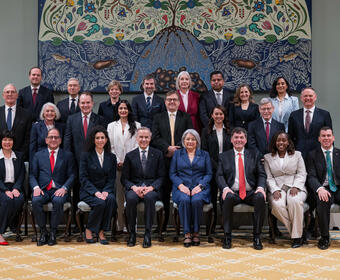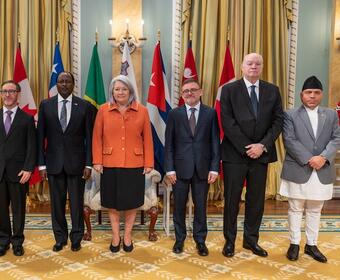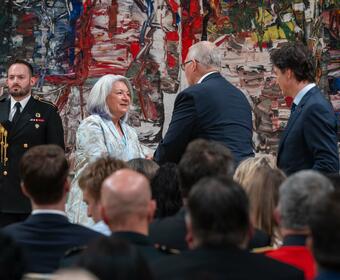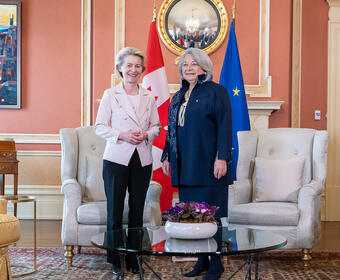
Canada is a constitutional monarchy, where the duties of head of State and head of government are distinct. The governor general exercises the powers and responsibilities of the Head of State, His Majesty The King. As such, the governor general is non-partisan and apolitical.
As The King’s representative in Canada, the governor general has a number of responsibilities, one of the most important being to ensure that Canada always has a prime minister and a government in place that has the confidence of Parliament. The governor general’s other constitutional duties include:
- swearing into office the prime minister, Cabinet ministers and the chief justice of Canada;
- summoning, proroguing and dissolving Parliament;
- delivering the Speech from the Throne;
- granting Royal Assent to acts of Parliament;
- appointing members of the Privy Council, lieutenant governors and certain judges, on the advice of the prime minister; and
- signing into effect official documents, such as orders-in-council.
While the Constitution Act (1867) places executive power in The King, in practice this power is exercised by the prime minister and his or her ministers. The governor general acts on the advice of the head of government but has the right to advise, encourage and warn. As such, the governor general can offer valued counsel to the prime minister. The governor general also holds certain reserve powers, thereby acting as a democratic safeguard in Canada.









